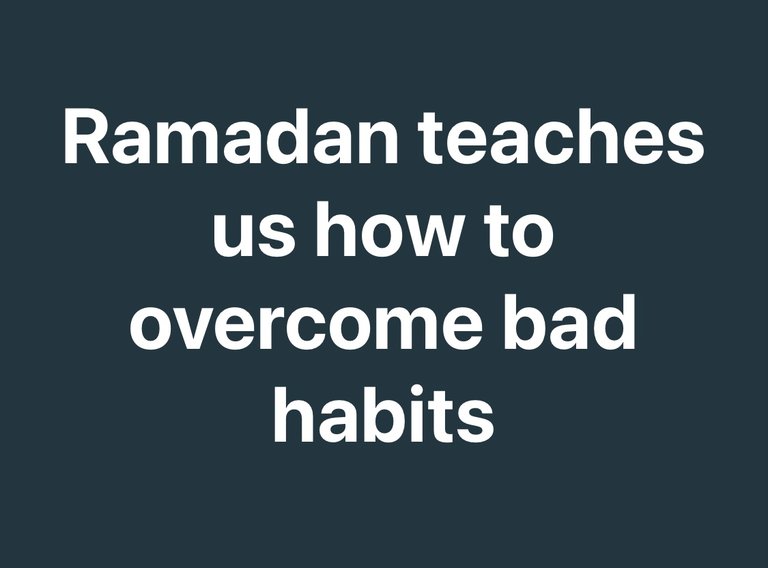What Ramadan really teaches us

As Muslims around the world observe the holy month of Ramadan, many of us are reminded of the transformative power of faith and self-discipline. Through the practices of fasting, Taraweeh, and Suhur, Ramadan teaches us valuable lessons about overcoming bad habits, cultivating spiritual growth, and realizing our full potential.
Fasting, for instance, is a powerful tool for breaking free from unhealthy habits and addictions. By abstaining from food and drink from dawn to sunset, we demonstrate to ourselves that we have the willpower to resist temptation and overcome cravings. This self-control can then be applied to other areas of our lives, helping us to quit bad habits and develop healthier ones.
Taraweeh, the voluntary night prayers performed during Ramadan, is another example of how Islam encourages us to push beyond our perceived limits. By waking up in the dead of night to pray, we build our endurance, discipline, and devotion to our faith. Taraweeh reminds us that we are capable of more than we think, and that with consistent effort, we can develop a deeper connection with Allah.
Suhur, the pre-dawn meal eaten before fasting begins, is also a testament to our ability to adapt and overcome. By waking up early to eat and prepare for the day ahead, we demonstrate our commitment to our faith and our willingness to make sacrifices for the sake of our spiritual growth.
Ultimately, Ramadan teaches us that Islam is not a burdensome or restrictive faith, but rather a transformative and empowering one. By embracing the challenges and opportunities of this holy month, we can discover our inner strength, resilience, and potential. As the Prophet Muhammad (peace be upon him) said, "A strong believer is better and more beloved to Allah than a weak believer." By pushing ourselves to grow and improve during Ramadan, we can become stronger, more confident, and more devoted believers, capable of achieving great things for the sake of Allah and our communities